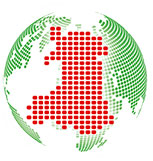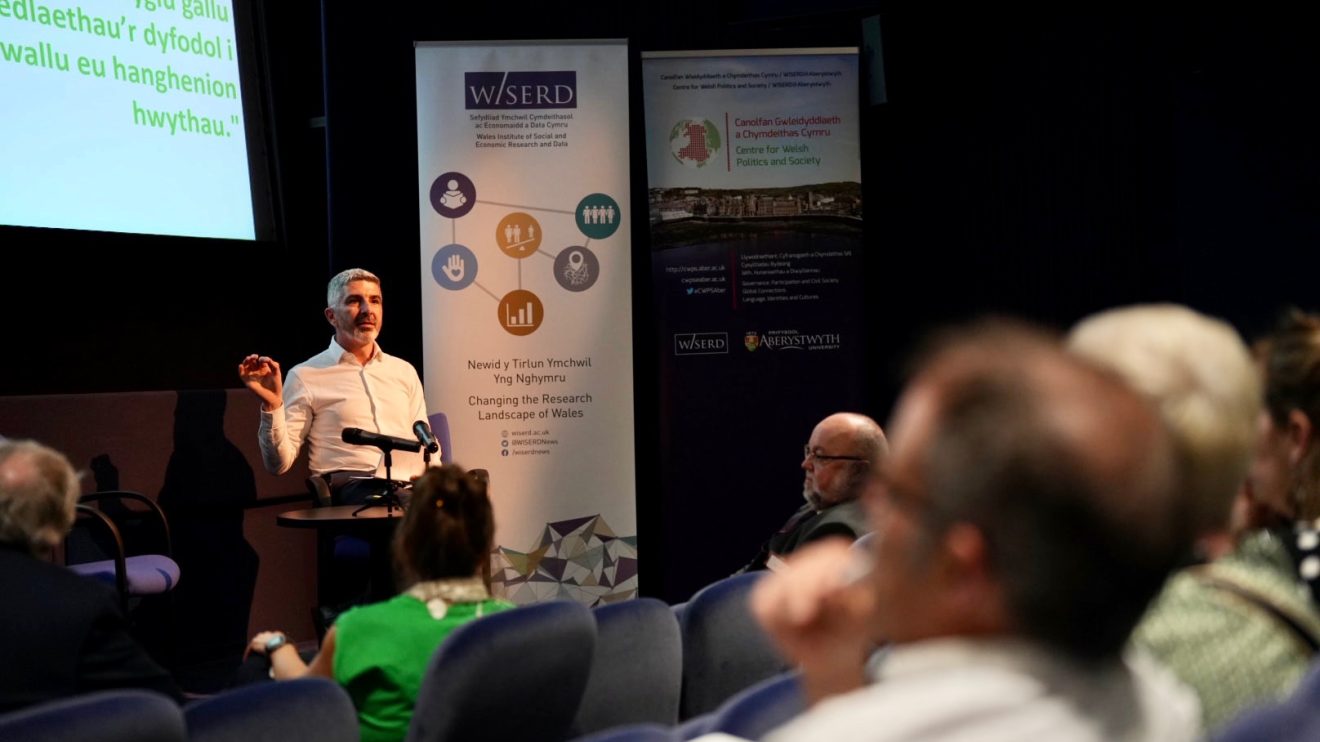WISERD academics based at the Centre for Welsh Politics and Society (CWPS) at Aberystwyth University jointly hosted a symposium with partners from the Voluntary Sector Studies Network (VSSN) on Wednesday 24 May at the National Library of Wales.
Facilitated by Dr Amy Sanders, with support from Aberystwyth University’s Dialogue Centre and adopting an innovative dialogue approach, this event brought community and voluntary practitioners together in the spirit of overcoming the polarisation between academic expertise and the wider community. As Jurgen Grotz, VSSN, explained: “This discussion is relevant in all the four nations of the UK which is something as a network we wish to pursue.”
Future Generations Commissioner for Wales, Derek Walker, demonstrated how the 2015 Well-Being of Future Generations Act and ‘The Five Ways of Working’ can be put into practice by appealing for conversation during his keynote speech and then staying right to the end to participate in the varied dialogue activities alongside community members, voluntary organisations and academics.

Ali Goldsworthy, de-polarisation expert and co-author of Poles Apart: Why people turn against each other and how to bring them together joined the event virtually to discuss the next steps in bringing future opportunities to address community polarisation in Wales.
Professor Marjorie Mayo, who led the discussion on ‘Community development and popular education in populist times’, highlighted the role of increasing poverty and economic insecurity in fuelling polarisation and populism in communities.
Professor Mayo said: “This was such a timely event, bringing academics together with voluntary and community sector activists to explore the challenges of increasing polarisation and the growth of the Far Right. How to develop inclusive strategies in response, enabling different voices to be heard? The conference was ever so well organised, enabling us all to share our experiences and ideas about ways of moving forward.”
Amanda Morris from the Muslim Council of Britain also emphasised the need to educate and empower communities to challenge problematic media representations of Muslims and Islam. Muslims make up 6.5% of the population of England and Wales, yet 59% of 10,931 media articles associated Muslims with negative behaviours. Such stereotypes must be challenged if we are to combat polarisation in local communities.
Cardiff University’s Anthony Ince spoke about the far-right voluntarism and Ali Abdi of the Grange Pavilion shared an insight into the dynamics of community organising, with a focus on lived experiences in Grangetown and partnering with the Jo Cox Foundation. Lively contributions about changes to democracy were made by young people from Planed and Aberystwyth’s Doing Democracy Differently project. Practical steps were offered for promoting inclusive Welsh communities with a focus on refugees by Aberaid and language by the British Red Cross.
Jen Wolowic from the Dialogue Centre at Aberystwyth University, said: “As someone who has recently moved from North America to Aberystwyth, polarisation is a personal experience for me. I’ve seen how easily it becomes contagious and destructive. Dialogue emphasises that we all have pieces of the solutions and we need to create bridges between our silos. Today put research, lived experience, third sector and policy into conversation with each other and that dialogue is so important for transformative change. I really appreciated how the organisers created these opportunities through their conference design and engaged those in the room and those attending virtually.”
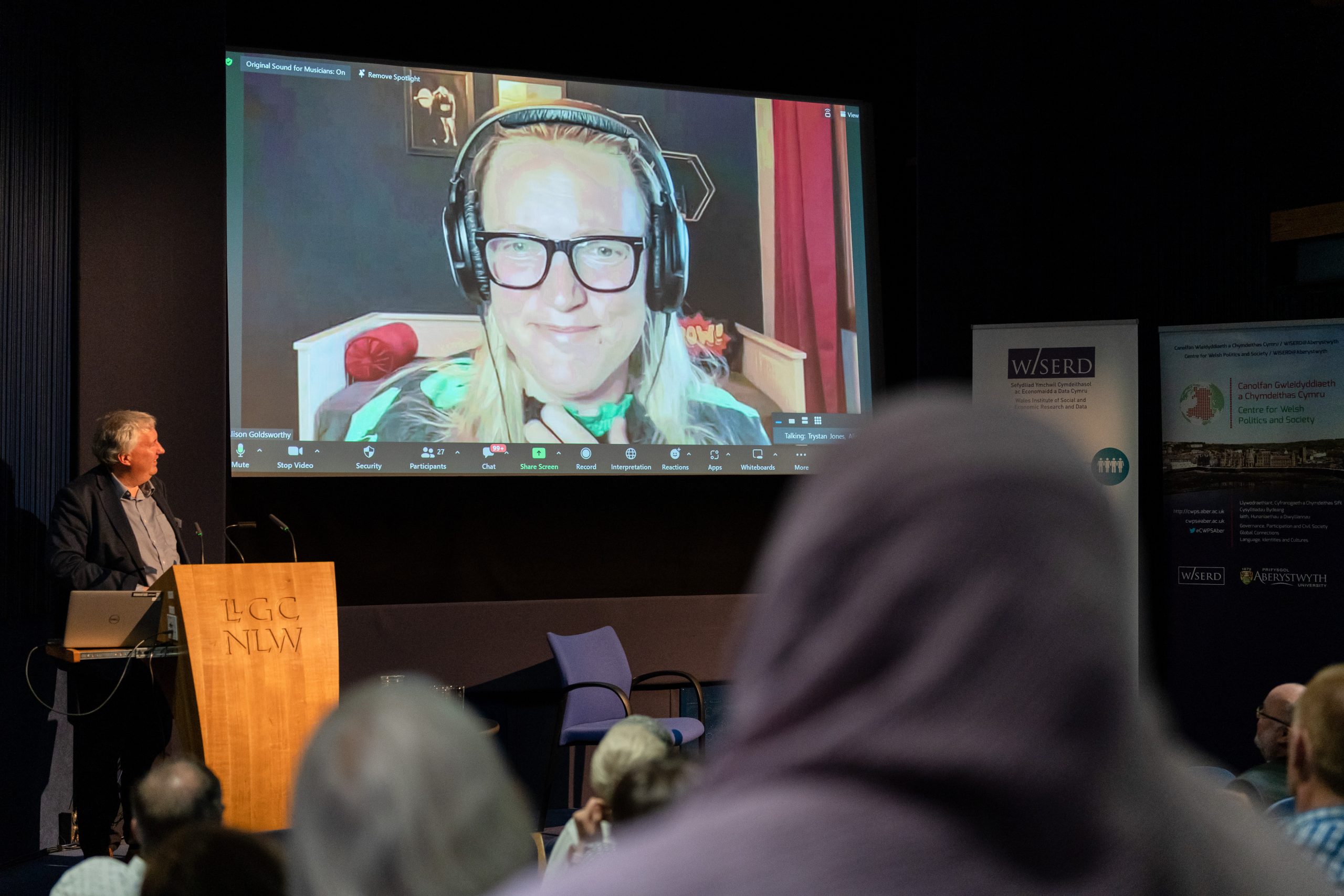
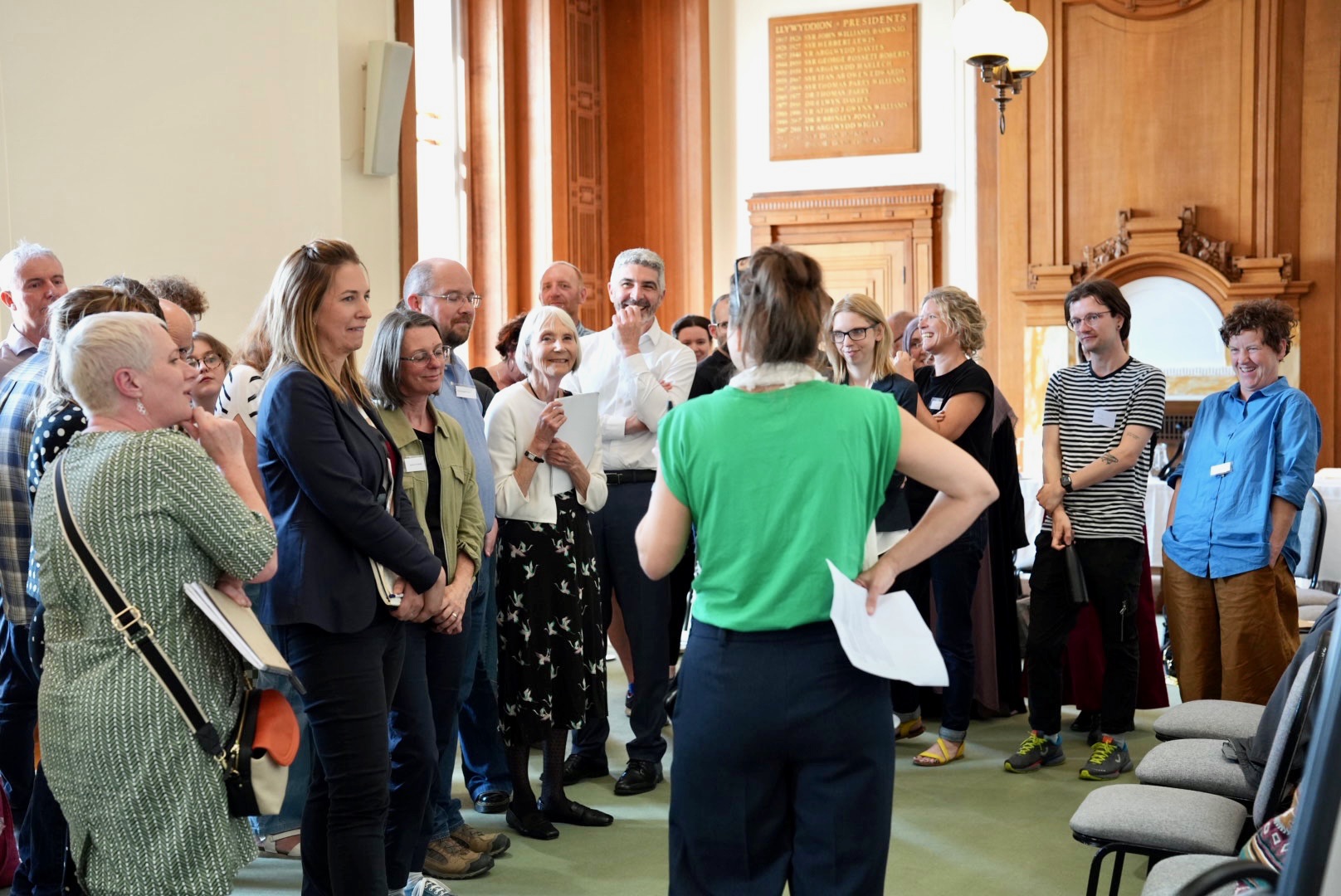
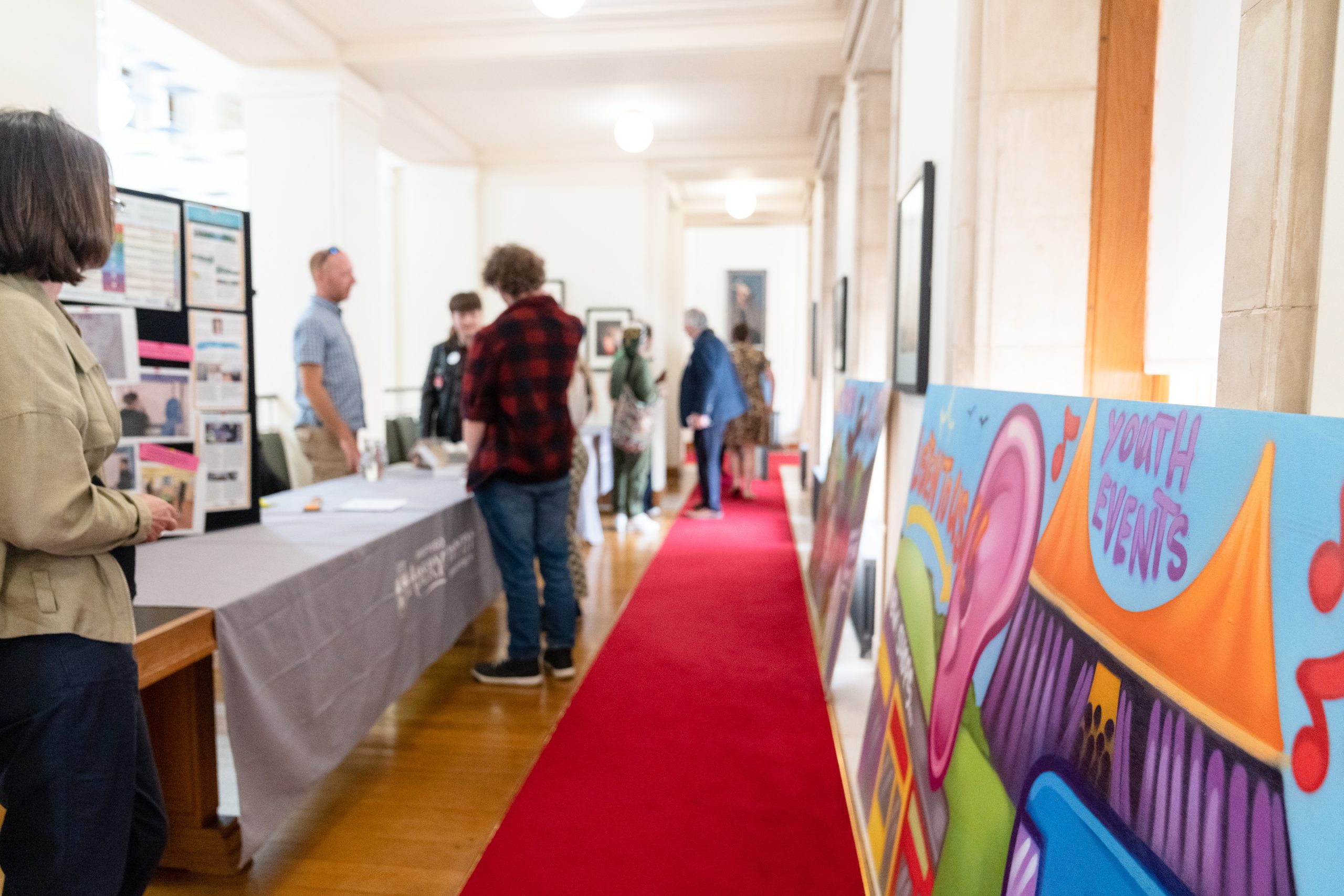
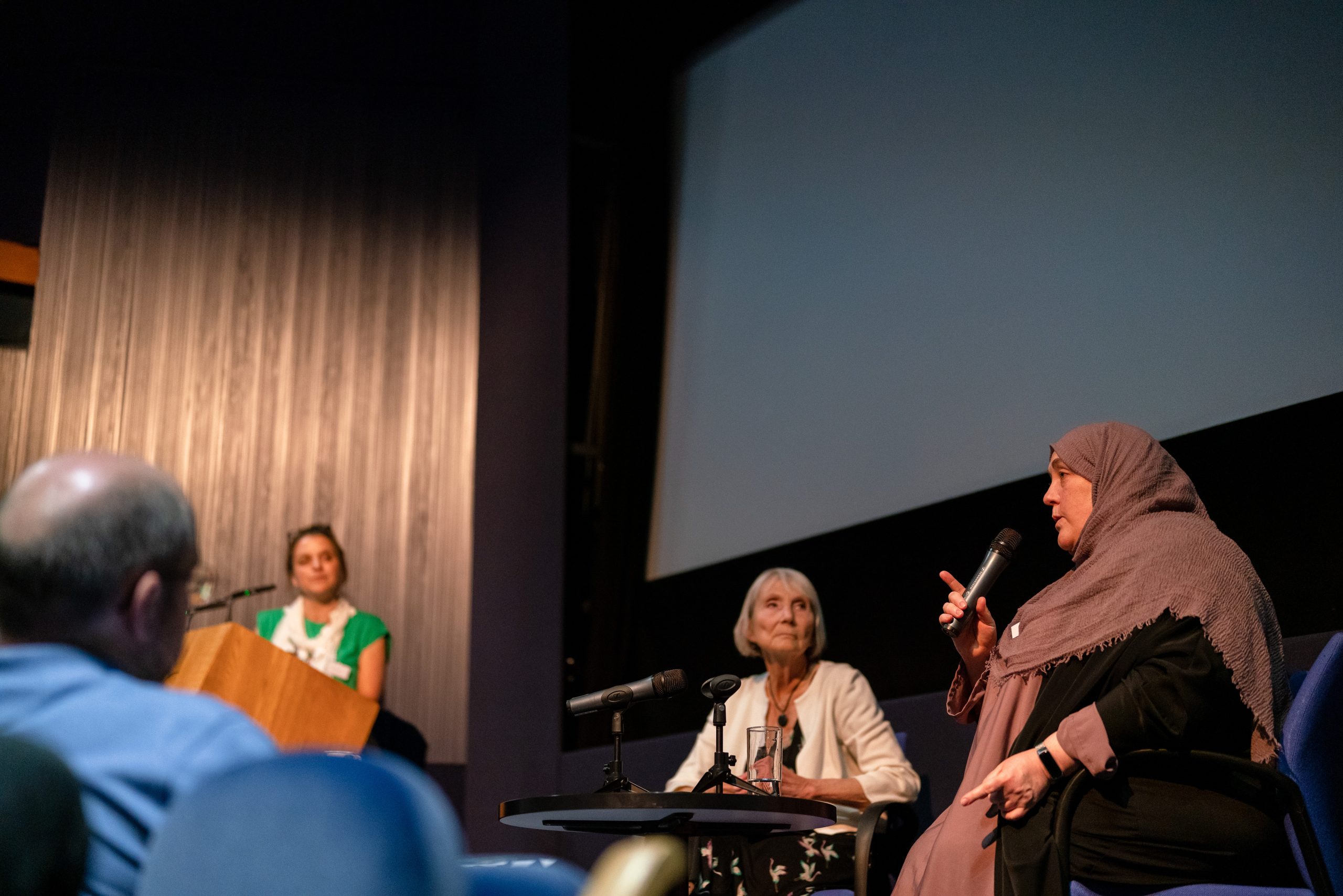
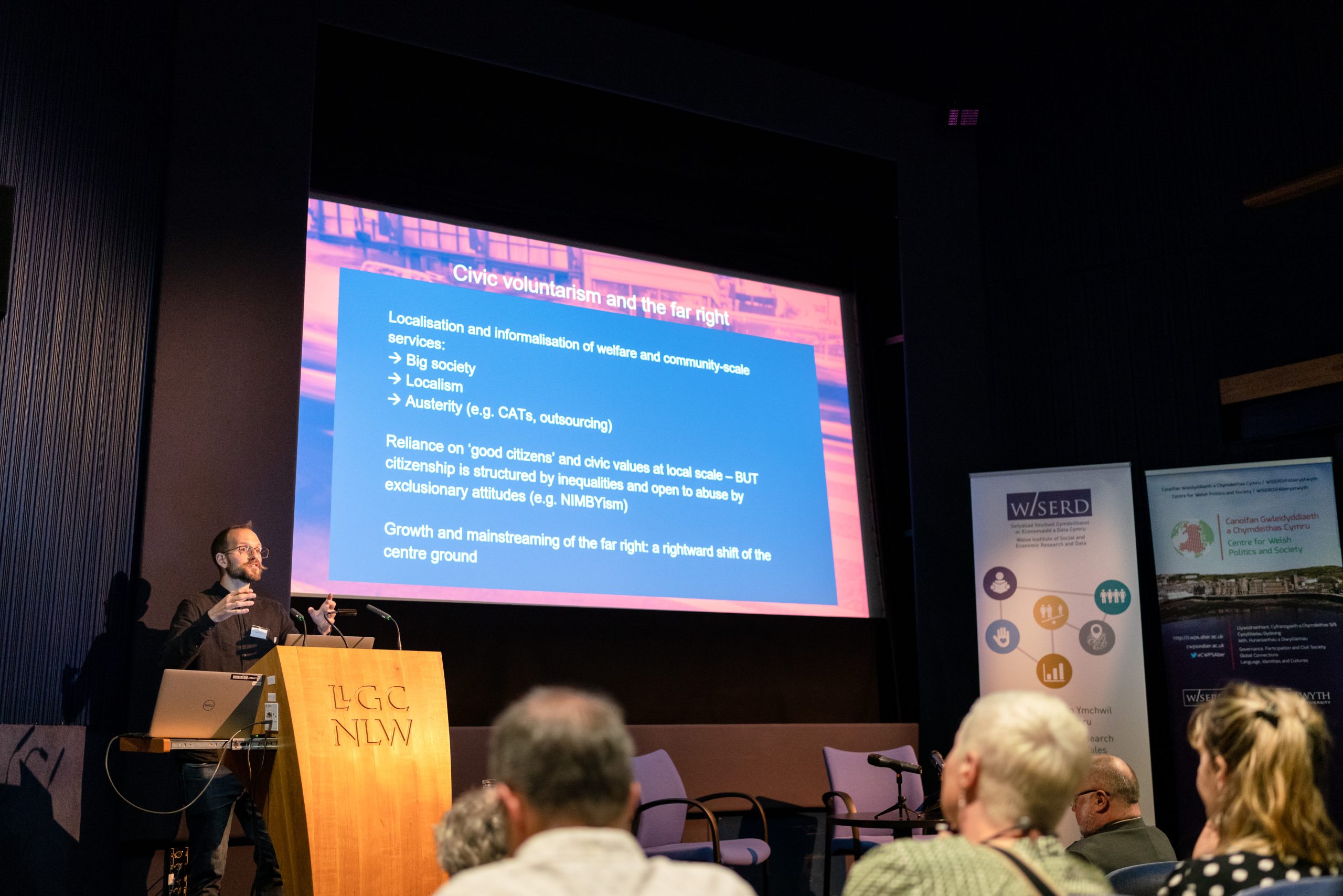
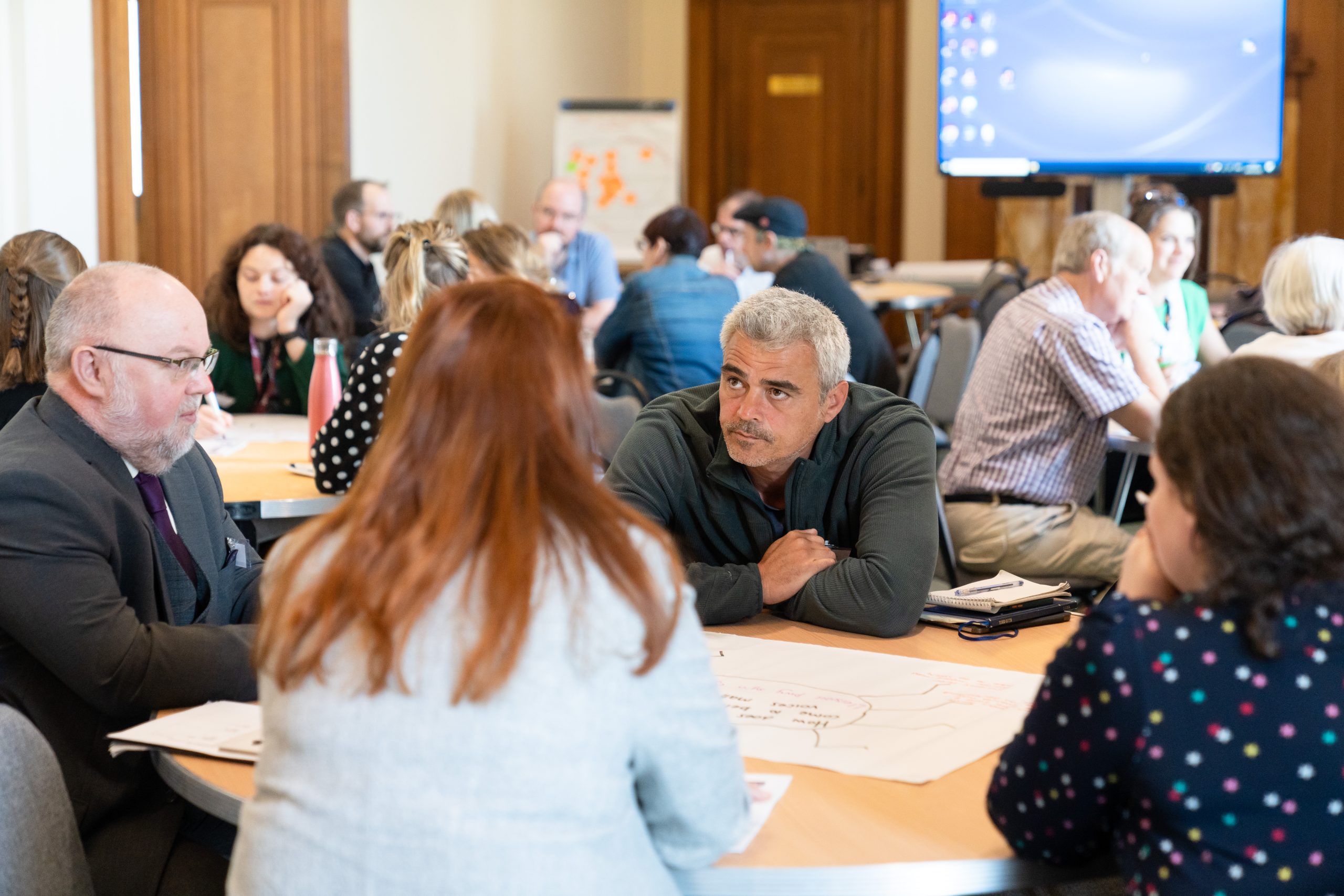
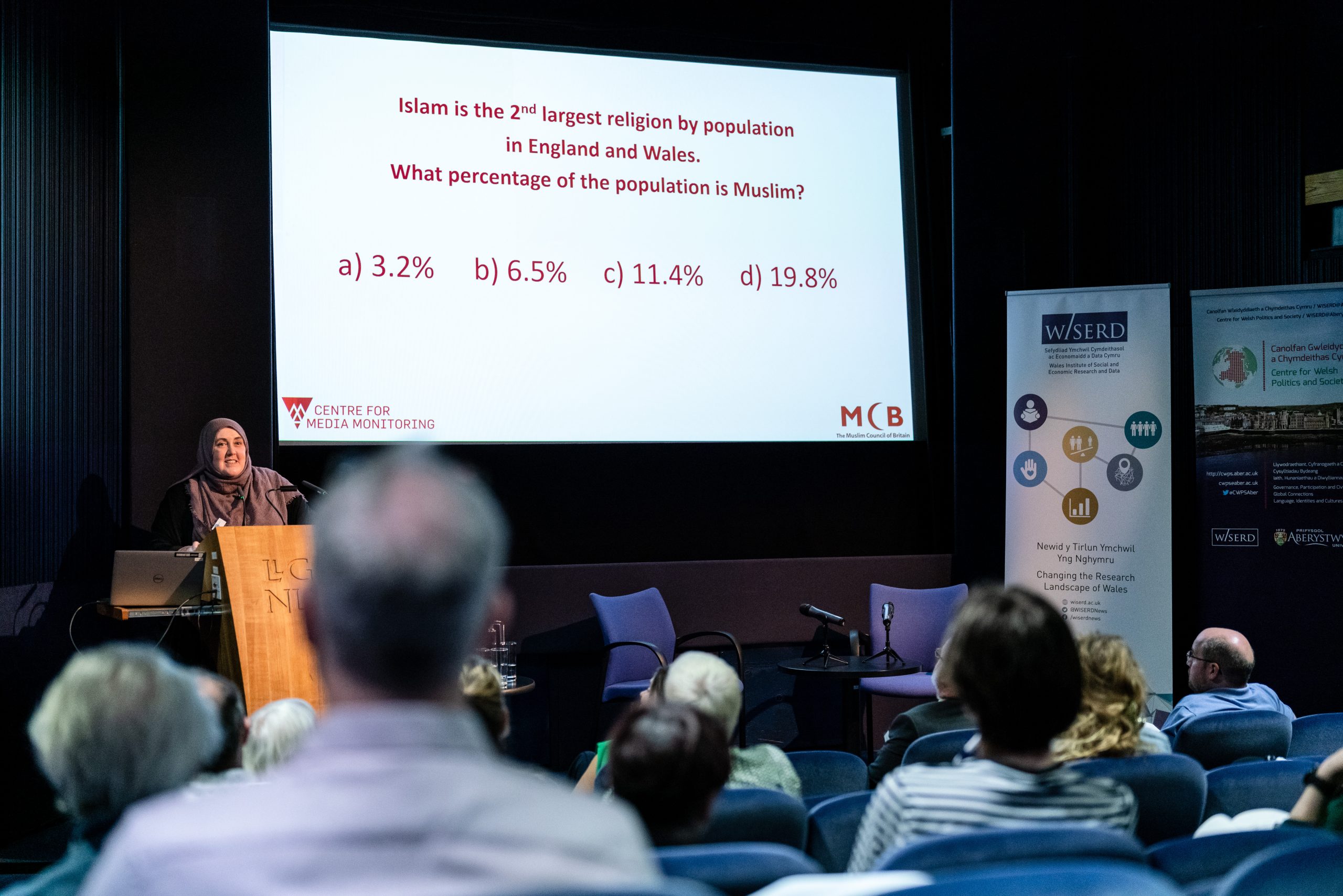
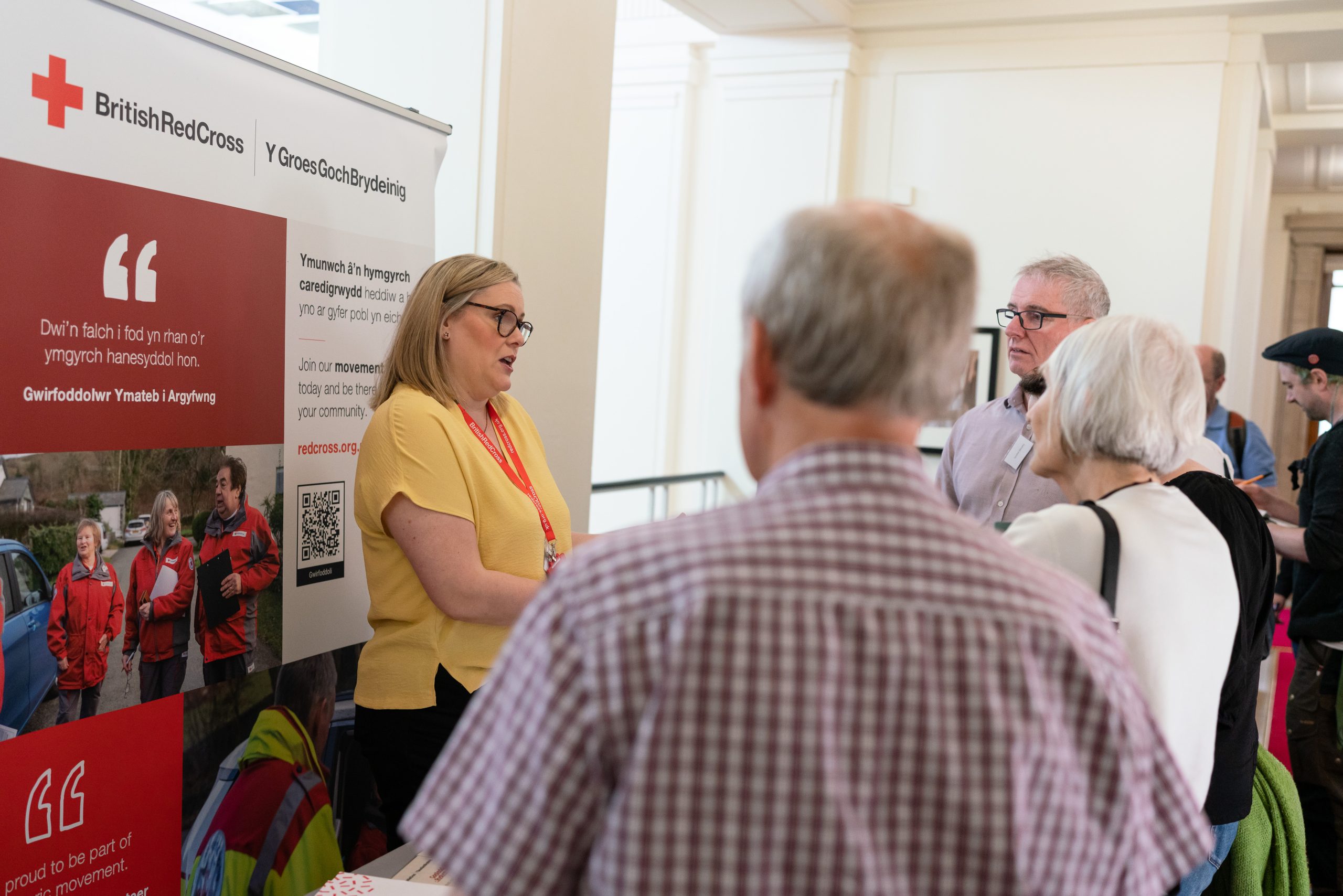
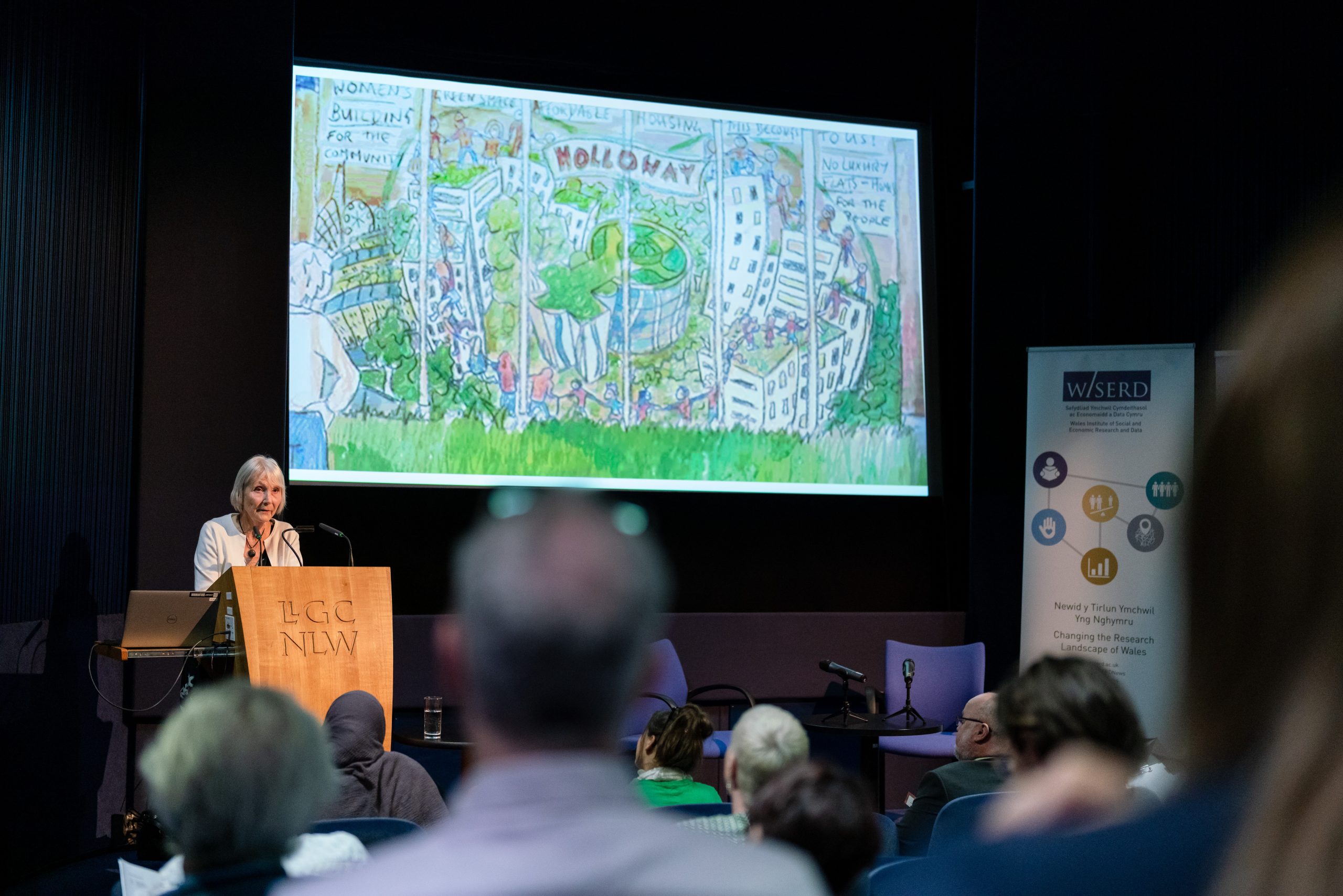
Contact
Dr Amy Sanders ams48@aber.ac.uk
CWPS CWPS@aber.ac.uk

